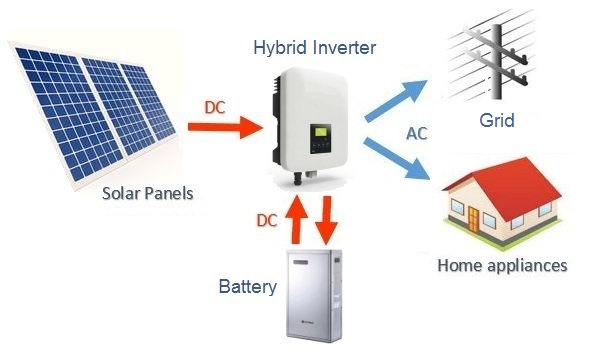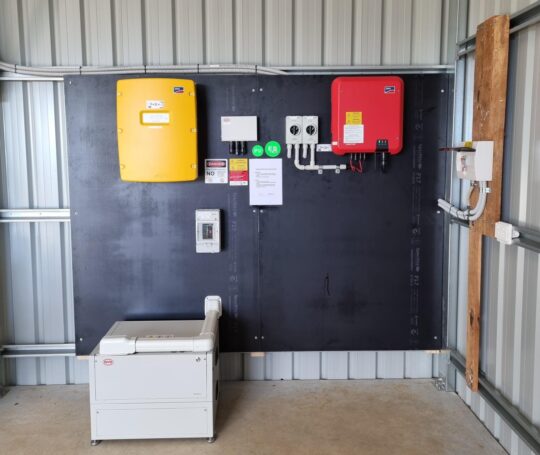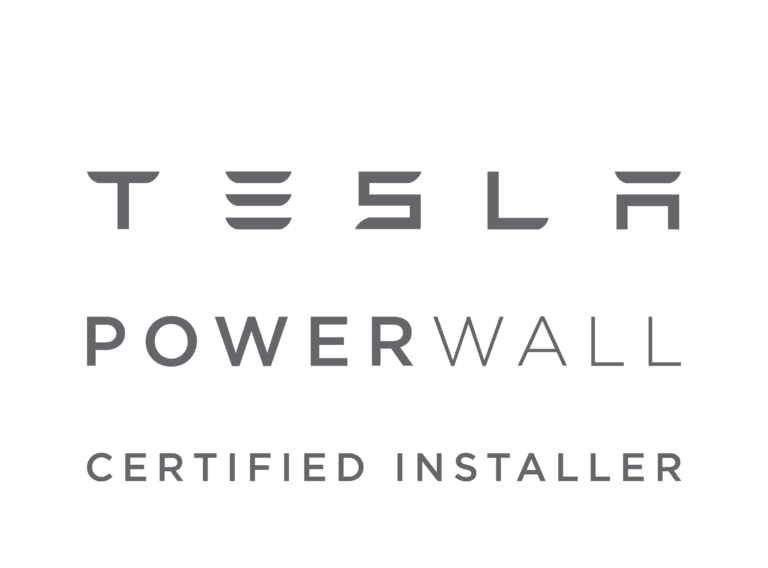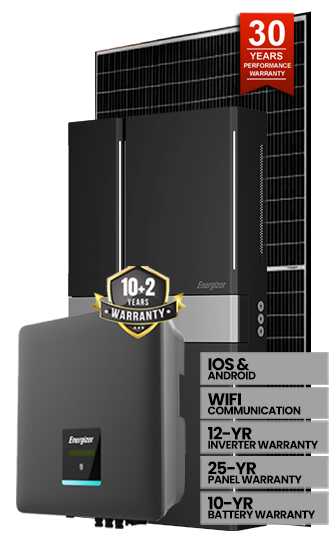
Traditionally, battery banks have been used primarily in solar power systems that are not connected to the electrical grid. But the majority of people and the majority of solar installations are connected to the grid. With grid-connected solar systems, batteries are not necessary because you can draw energy from the grid when your solar generation isn’t enough. However, with electricity prices rising, and battery technology getting cheaper, it’s becoming more feasible to have a ‘Hybrid Solar System’. A hybrid system is the best of both worlds. You have emergency back-up power during black-outs, can store excess energy generated by your solar system, and you can also draw more power from the grid when you need


As mentioned earlier, a battery can store excess power. So you can use that during black-outs when the grid is unable to provide you with any energy. Or you can use your solar-generated power at night when your solar system is unable to provide you with energy. You can ‘buy’ energy from the grid when it’s cheaper during ‘off-peak’ times, and store it for use during ‘peak’ times when electricity would be more costly.
A hybrid solar system is freeing, as it allows much more independence from your power company. Rather than having to rely on them during the night time, like with a regular solar installation, you can draw from your battery. Which allows you to reduce your electricity bill.
The number of solar power storage solution technologies available in Australia is growing. Each one functions in a slightly different way, but the basic principle is the same. A hybrid solar system is generally comprised of a battery bank (utilising a technology such as standard-issue lead-acid or the increasingly affordable lithium-ion) and a smart inverter that can manage power in accordance with programming.
The capacity of the solar batteries vary by brand and model of the product. So it’s important to find the right size to fit your needs. Many are built to be expandable, to allow you to scale your battery storage solution based on demand. Usually a battery is used as a ‘buffer’ from the grid. So you would not store a weeks worth of power on a battery, but closer to 10 hours. This is enough to store solar energy for use overnight, or to provide enough energy during peak moments without being charged peak prices from the grid. Of course, a large battery solution may be a good idea if having power at all times is important and don’t want to be at the mercy of the grid (such as a hospital)

While solar power systems are rated in kilowatts (kW), electricity storage capacity is measured in either ampere-hours (Ah) or kilowatt-hours (kWh, the same measure used in power bills). The level of storage capacity that you require will depend on how you plan to plan to use your power.
Lifespan important factor to look out for. The lifespan of a battery is usually measured in ‘cycles’. As each cycle the battery performs, a slight amount of its capacity is lost. So it’s important check the rate of degradation for each battery when comparing them. For instance lead-acid batteries, while cheaper, have a shorter lifespan than the more expensive lithium-ion batteries (although they are coming down in price).

Solar Link Australia is a Market Leader in Solar Photo Voltaic Supply and Installation. (EST 2010). Our team is committed to making renewable energy a major part of Australia’s energy base.





Ready to secure your deal? Request a callback now to lock in your price before the reduction takes effect!

Something isn’t Clear?
Feel free to contact us, and we will be more than happy to answer all of your questions.

or If you need quick assistance

or If you need quick assistance

or If you need quick assistance

or If you need quick assistance

or If you need quick assistance

or If you need quick assistance

or If you need quick assistance

or If you need quick assistance

or If you need quick assistance

or If you need quick assistance

or If you need quick assistance
Something isn’t Clear?
Feel free to contact us, and we will be more than happy to answer all of your questions.

Something isn’t Clear?
Feel free to contact us, and we will be more than happy to answer all of your questions.